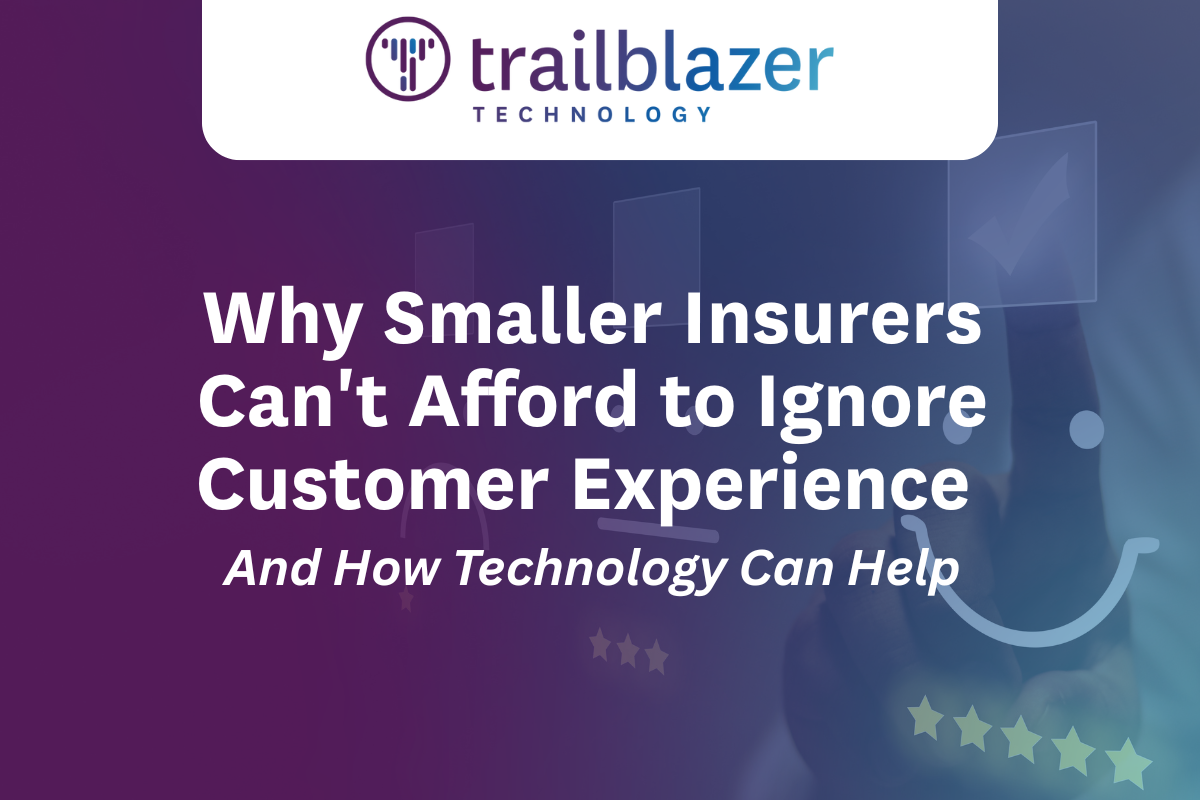3 min read
Tearing Down Data Silos for Smaller Insurers
Why a Connected Ecosystem is Your Competitive Edge For a small insurer, daily operations can often feel like a juggling act. Your policy data lives...

You might think of "digital transformation" as a term for big companies, but for smaller insurers, it's a direct path to lasting growth and profitability. The return on investment (ROI) from adopting modern technology, especially a cloud-based core system, is significant. It can directly impact your bottom line and improve your competitive standing.
Here’s a breakdown of the powerful ROI of modern software for smaller insurers.
In an industry built on trust, customer satisfaction is everything. A positive experience can turn policyholders into loyal advocates, and modern solutions make it easier than ever to deliver a great experience.
Convenience at their fingertips: Online portals and mobile apps empower policyholders to self-serve. They can view and manage their policies, pay bills, and even file claims whenever it's convenient for them, without needing to call customer service.
Personalized communication: Using data analytics, you can understand individual policyholder needs and preferences. This allows you to send relevant notifications—like renewal alerts and payment reminders—and offer proactive outreach based on their specific policy or life events.
Stronger relationships: A seamless, convenient, and personalized experience not only attracts new clients but, more importantly, helps you retain existing ones, contributing directly to long-term revenue stability and growth.
Digital solutions help you eliminate time-consuming, error-prone, and expensive manual tasks common with legacy systems. Automation frees up your team and streamlines processes, saving you time and money.
Automation benefits: Automated underwriting reduces human error and speeds up policy issuance, leading to faster revenue. Modernized claims handling accelerates assessments and automates tasks like initial intake and document routing, which reduces administrative overhead.
Resource savings: By eliminating paper-based processes and manual data entry, you save on physical resources like printing, storage, and courier services.
Increased productivity: Your valuable employees are free to focus on more strategic, high-value tasks that require human judgment, rather than getting bogged down in routine administrative duties.
Modern core systems facilitate the use of data analytics and predictive modeling, allowing for more precise risk assessments that go beyond traditional methods.
Precise assessments: Move past manual analysis and leverage a wider range of data points to identify emerging risks and patterns. For example, you can combine geographical data with claims history to pinpoint high-risk areas.
Optimized pricing: Make data-driven adjustments to your pricing, ensuring your premiums are competitive while accurately reflecting the risk. This leads to better loss ratios and more profitable business.
Innovative tools: Utilize advanced data streams, such as telematics and IoT device data, to monitor risks in real time. This can even enable usage-based insurance, rewarding safer behaviors with lower premiums and helping you write more profitable business.
A data breach can be devastating for a smaller insurer, leading to significant financial strain and reputational damage. Investing in a modern, cloud-based solution is a proactive way to protect your business.
Advanced security: Modern cloud-based software leverages advanced security features like data encryption and robust access controls to protect sensitive information. Cloud providers also continuously update their systems with the latest defenses, so you don't have to.
Compliance simplification: Cloud providers invest heavily in security and adhere to stringent compliance standards (like SOC 2 and HIPAA). This simplifies the complexities of meeting regulatory requirements for data protection.
Risk mitigation: The cost of proactive security measures is far less than the reactive response to a breach, making security an investment rather than an expense.
By offering more efficient processes, better customer service, and more accurate pricing, smaller insurers can stand out from the competition.
Differentiation: A commitment to modernization and superior service can differentiate you from larger competitors and other mutuals, helping you appeal to a broader, more digitally savvy audience.
Trust and relevance: By embracing technological advancements, you strengthen relationships with your members and reinforce your brand as an innovative, efficient, and forward-thinking company.
The ROI of digital transformation for smaller insurers isn't just about cutting costs; it's about investing in growth, security, and a superior policyholder experience. Trailblazer Technology provides cloud-based core systems that empower smaller insurers to realize these significant returns, making digital transformation a profitable reality.
.png)
3 min read
Why a Connected Ecosystem is Your Competitive Edge For a small insurer, daily operations can often feel like a juggling act. Your policy data lives...
.png)
2 min read
Spring is in the air! It’s a time for renewal, fresh starts, and decluttering – not just your home, but your insurance operation, too. Just like a...

3 min read
In the past, digital customer experience in the insurance industry was often an afterthought, particularly for smaller insurers focused on localized...